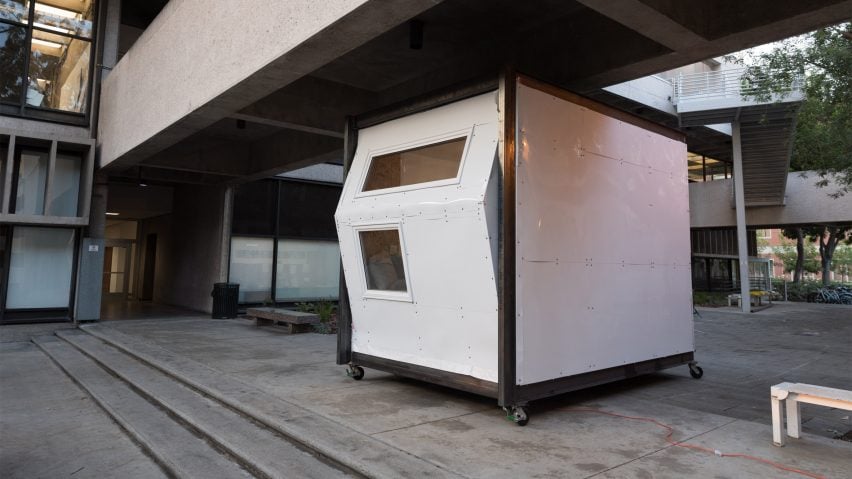
California architecture students design shelters for LA's growing homeless population
Students at the University of Southern California's School of Architecture have conceived a series of shelters for homeless people, ranging from a shopping cart converted into a tent structure to a tiny house made of scavenged material.
Called the Homeless Studio, the course was aimed at investigating the architect's role in homelessness, and devising solutions for a rapidly growing homeless population in Los Angeles and beyond.
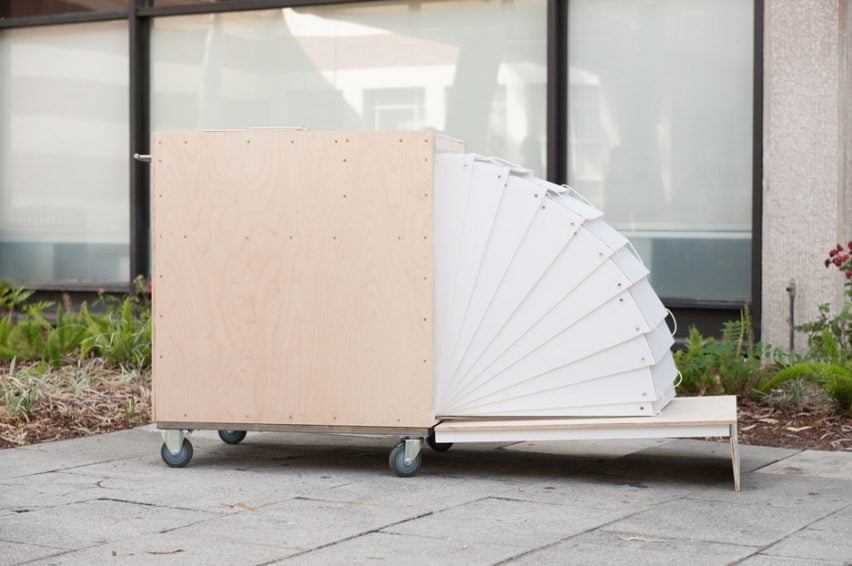
The studio was backed by The Martin Architecture and Design Workshop (Madworkshop) – a Santa Monica-based nonprofit organisation that supports young, socially minded designers through fellowships and education programs.
"Nearly 47,000 people are homeless in the Los Angeles County area, a number that has increased by 5.7 per cent from 2015," the organisation said. "The problem has become a countrywide epidemic where over 500,000 people are homeless, and the need for housing solutions grows more pressing by the day."
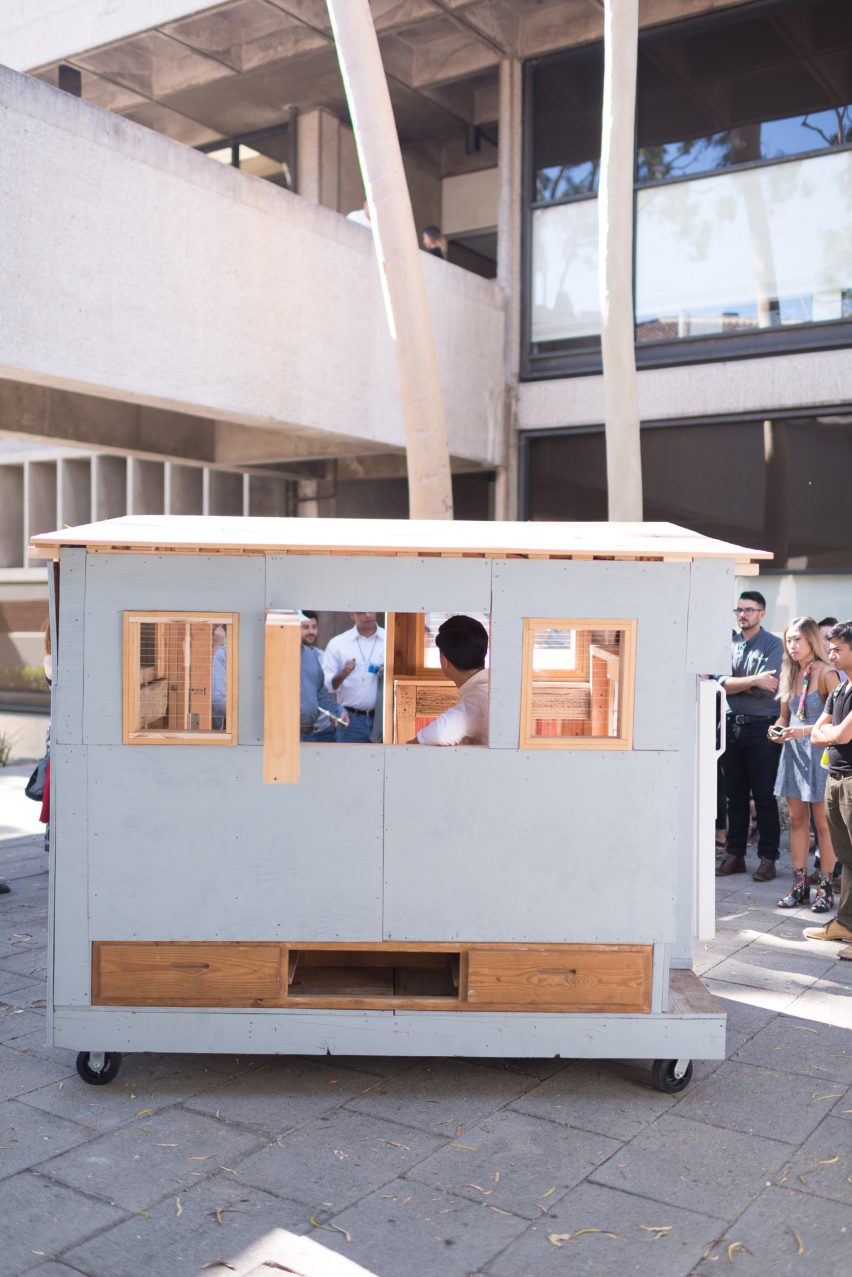
Held last fall, the class consisted of three separate projects that ranged from creating movable shelters to designing a modular housing complex for a local rescue mission.
The first project asked students to develop full-scale, nomadic shelters that could be collapsed and reassembled in a variety of contexts. "Materials used in these shelters were limited to what someone can easily gain access to while living on the streets, such as a shopping cart or a small wooden box," the team said.
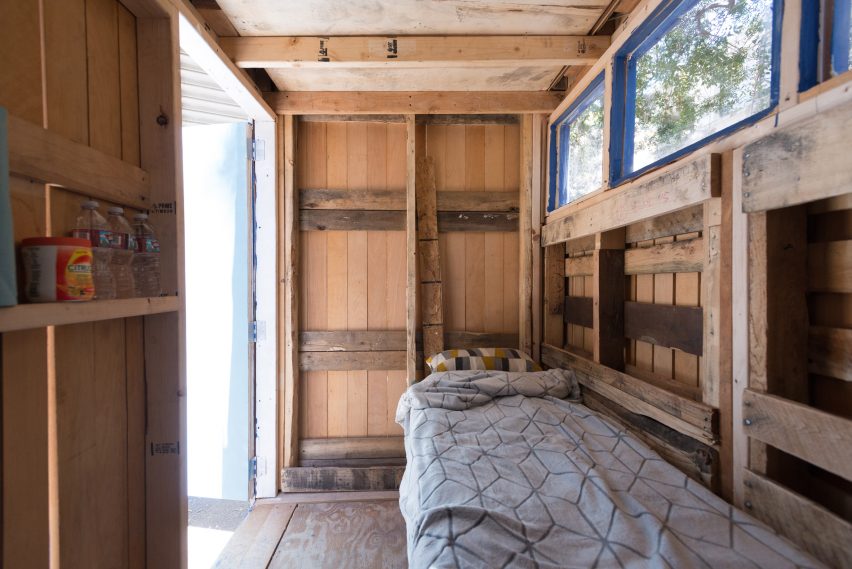
Students then conceived three micro dwellings as part of a one-week-long workshop led by Oakland-based artist and tiny house builder Gregory Kloehn. Students had to scavenge the city for material to construct the dwellings. Wheels, locks and screws were the only purchased materials.
The students then worked collaboratively on the final project: a 30-bed shelter for the Hope of the Valley Rescue Mission.
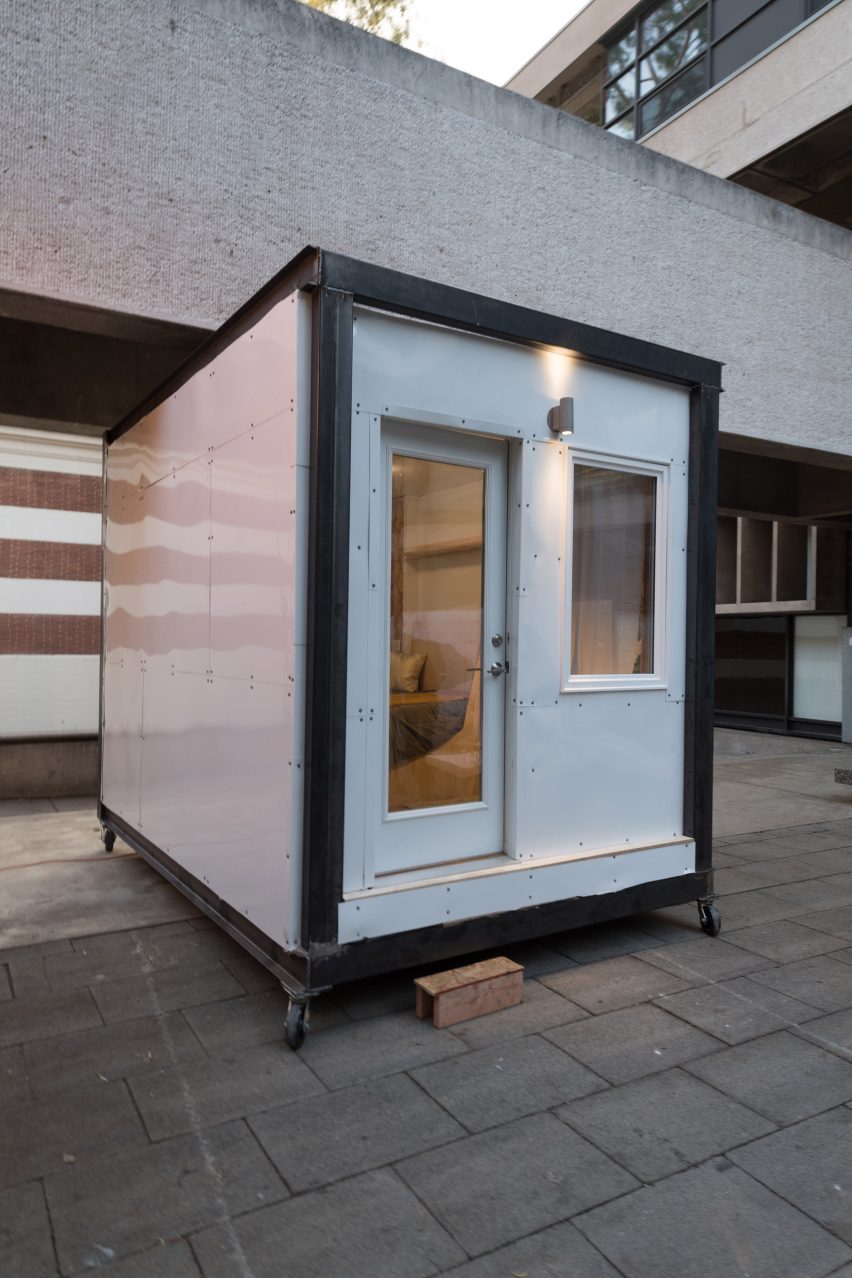
The team conceived a village consisting of modular units measuring 92 square feet (8.5 square metres). Some contain bedrooms, while others are combined to form bathroom facilities and communal rooms. The complex also is designed to have outdoor terraces and courtyards.
The concept could become reality. "In a rare feat, the project received support from the city of Los Angeles and has now moved into the fundraising stage," the team said.
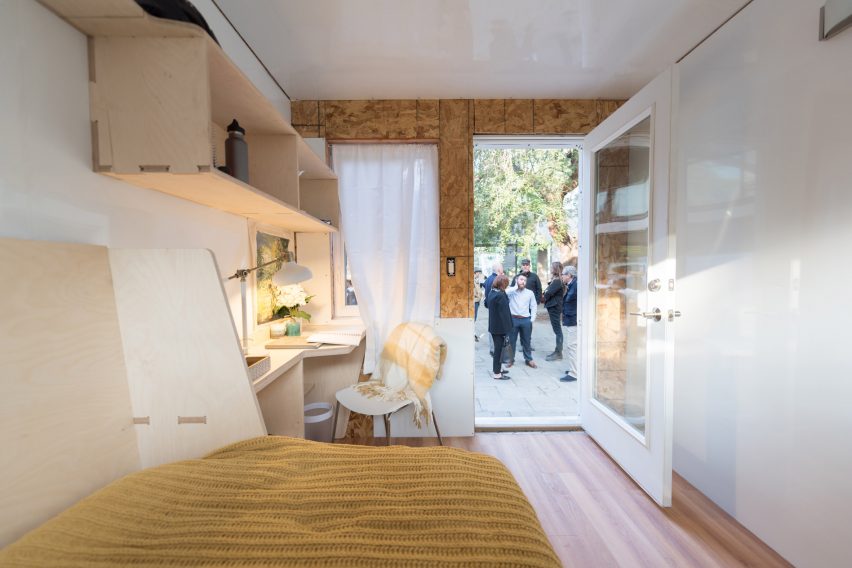
The studio was taught by Sofia Borges and R Scott Mitchell, both faculty members at the university. Borges is director at Madworkshop, while Mitchell is a board member.
"The Homeless Studio set out to investigate solutions to an important and pressing issue in our cities," said Borges. "As designers, we have the power to make a difference, and the students realised that through the course of the semester."
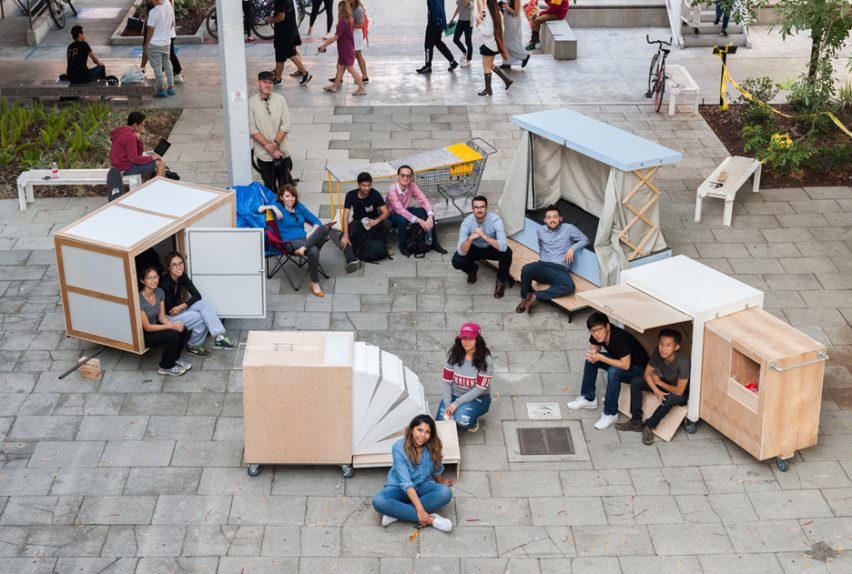
The studio was conceived in 2015 by Mary Klaus Martin, who cofounded Madworkshop. Her organisation aims to nurture "young talent who will make a radical, sustainable and impactful contribution to the design discourse and society at large".
Other student-designed shelters include a coat for refugees that converts into a tent, which was conceived at London's Royal College of Art, and a micro dwelling by students at the University of California, Los Angeles (UCLA) that aims to help combat the city's affordable housing crisis.
Photography by Brandon Friend-Solis
Project credits:
Madworkshop cofounders: David C Martin, Mary Martin
Madworkshop director and Homeless Studio instructor: Sofia Borges
Homeless Studio instructor: R Scott Mitchell